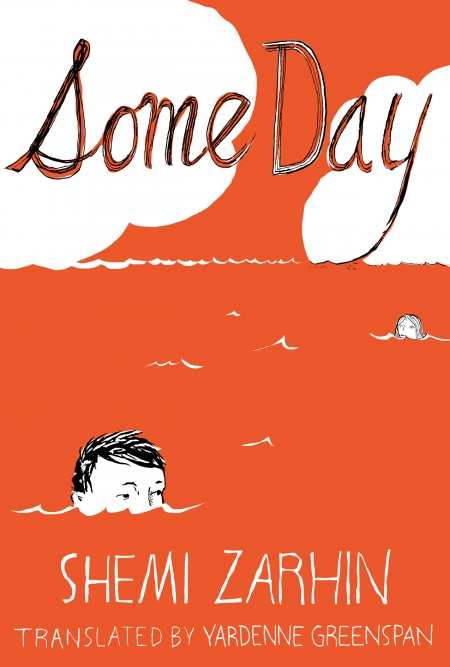Some Day
This thrilling, fresh, and surprising novel ought to draw the eyes of the literati back to Israel.
Filmmaker Shemi Zarhin’s emotionally expansive and beautiful debut centers on an outwardly average Israeli family, perched with resolve near the Sea of Galilee and maneuvering challenges both personal and national.
The novel opens between the Six Day and Yom Kippur Wars, in days of relative peace. Shlomi, a boy whose intelligence is belied by his continued struggles with reading, is pushed into a friendship with neighbor Israella, the troubled daughter of two Holocaust survivors, her family new to the country. Shlomi is taken by Ella’s blunt way of interacting with the world—by her morbidity and her refusal to remain at the center of her parents’ hope.
Shlomi is not alone in having strong reactions to these newcomers. His mother, Ruchama, watches this other family with a mixture of pity and resentment—these “human powders” with their unapologetic lack of courtesy, who don’t even manage to sit shivah properly. Her husband, Robert, a stringy-haired repairman with a collection of salacious secrets, has his own interests in the family, though they center on Ella’s becoming mother, Hanna. And Shlomi remains perched in the middle—enraptured by Ella but incapable of forgiving her family’s disruption of his once-happy life.
At first, these characters project pictures of relative domestic harmony, but as desires and frustrations are piqued and addressed, fractures begin to show. Shlomi can’t talk about what he saw through the window at Hanna’s apartment one afternoon, not even to his sensitive brother, Hilik, but it has something to do with his father’s fresh relegation to a separate apartment.
Ruchama buries her despair in her soon notorious culinary masterpieces and yearns for tranquility, even if it first carries high costs. Robert begs to come home, and Hilik does his best to teach them all how to love and be better. Tragedy and war will throw them all into discord once more, though for a few, heartbreaks also open opportunities for making peace.
Zahrin’s prose is rich and distinctive and is frequently marked by sustained tactility and sensuality. The author moves in and out of innocence, heartbreak, redemption, love, and shame—and does so with skill. This thrilling, fresh, and surprising novel ought to draw the eyes of the literati back to Israel.
Reviewed by
Michelle Anne Schingler
Disclosure: This article is not an endorsement, but a review. The publisher of this book provided free copies of the book to have their book reviewed by a professional reviewer. No fee was paid by the publisher for this review. Foreword Reviews only recommends books that we love. Foreword Magazine, Inc. is disclosing this in accordance with the Federal Trade Commission’s 16 CFR, Part 255.

